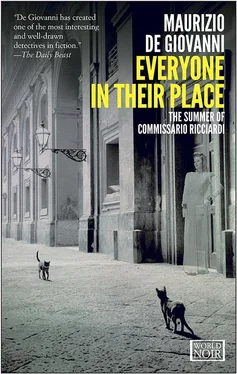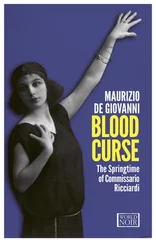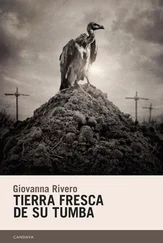Maurizio de Giovanni - Everyone in Their Place
Здесь есть возможность читать онлайн «Maurizio de Giovanni - Everyone in Their Place» весь текст электронной книги совершенно бесплатно (целиком полную версию без сокращений). В некоторых случаях можно слушать аудио, скачать через торрент в формате fb2 и присутствует краткое содержание. Жанр: Исторический детектив, Полицейский детектив, на английском языке. Описание произведения, (предисловие) а так же отзывы посетителей доступны на портале библиотеки ЛибКат.
- Название:Everyone in Their Place
- Автор:
- Жанр:
- Год:неизвестен
- ISBN:нет данных
- Рейтинг книги:4 / 5. Голосов: 1
-
Избранное:Добавить в избранное
- Отзывы:
-
Ваша оценка:
- 80
- 1
- 2
- 3
- 4
- 5
Everyone in Their Place: краткое содержание, описание и аннотация
Предлагаем к чтению аннотацию, описание, краткое содержание или предисловие (зависит от того, что написал сам автор книги «Everyone in Their Place»). Если вы не нашли необходимую информацию о книге — напишите в комментариях, мы постараемся отыскать её.
Everyone in Their Place — читать онлайн бесплатно полную книгу (весь текст) целиком
Ниже представлен текст книги, разбитый по страницам. Система сохранения места последней прочитанной страницы, позволяет с удобством читать онлайн бесплатно книгу «Everyone in Their Place», без необходимости каждый раз заново искать на чём Вы остановились. Поставьте закладку, и сможете в любой момент перейти на страницу, на которой закончили чтение.
Интервал:
Закладка:
“I say that this ragù looks like it must be delicious. It’s Sunday, it’s lunchtime, and I say: buon appetito .”
And with that, he dug in.
XLVII
In the silence of Sunday afternoon, Ricciardi was looking at Adriana Musso di Camparino’s murderer.
He watched him move lazily in the heat, taking care of minor chores. He watched him look up at the sky, when a distant rumble announced that the weather was finally about to change; the man shook his head, sighed, and went back to pruning dry leaves off the plants.
Ricciardi’s head was no longer spinning. The walk he’d taken all the way from Santa Lucia had cleared his thoughts, and he’d felt the usual miracle take place in his mind: with the new interpretive framework, every individual piece slotted into its place, every element harmonized with the others, and now, at last, they formed a picture that was fully plausible from every point of view. To a certain extent, he’d also forgiven himself: he’d been superficial and careless, he knew that; but deep down he’d also gone on thinking, investigating that murder without ever really stopping. Because he’d never really been convinced that it had gone the way everyone thought.
By the halfway point along his walk, he’d reconstructed all the various events, exactly as they had occurred. Now he needed to know the rest: the motives, the reasons why. The context of the passions, the emotions that had danced around the duchess’s corpse.
He walked over to the murderer and the man saw him. He didn’t seem surprised, nor did he appear to have any thought of running, no sudden impulses. The commissario greeted him with a nod of the head and sat down on a marble bench: Peppino Sciarra, the doorman of Palazzo Camparino, doffed his oversized hat and let himself sink down beside him.
They sat in silence, for a while. Somewhere, from a window not far away, several goldfinches sang sweetly to the dying summer. It was Ricciardi’s turn to speak, and Ricciardi spoke:
“When Signora Capece confessed, I believed her. We all believed her; and we were right, because everything she said was true. But there were a few pieces that didn’t fit, with either Sofia Capece’s account or some of the things that we’d found. Still, Capece confessed, Musso was somewhere else, so was the journalist, and her new lover would have been noticed. So for all of us, it was Signora Capece, end of story. But it wasn’t the end of the story.”
Sciarra looked straight ahead, head bowed as if the weight of his enormous nose were simply too much.
Ricciardi went on:
“There were marks on the duchess’s body: broken ribs, shattered fingernails. And the cushion, the cushion pushed down on her face. The duchess was already dying. Those were her death throes, the last rattles of her respiration: she wasn’t snoring when Sofia Capece shot her.”
The doorman ran a trembling hand over his eyes. Ricciardi didn’t bother to look at him, but went on with his reasoning in a cold, remote voice:
“And she was dying because she’d been suffocated. The bullet hole between the eyes distracted us, kept us from understanding: in fact, when she was shot the duchess’s fate was already sealed. But then, who killed her?”
He turned to look at Sciarra, who was covering his eyes with his hand. He hardly even seemed to be breathing.
“We could have seen it. I could have seen it. I had all the evidence in hand. The murderer’s strength was the strength of desperation; there was no fury, there was no rage. The murderer didn’t take it out on her, he didn’t disfigure her. He was fighting for his life, he was afraid. He fought and he won, the murderer. The only disfigurement was Ettore’s work, when he tore his mother’s ring off the dead finger, dislocating it. And Signora Capece’s gunshot: there was no violence, there was no rage; it was simple madness. Sofia Capece wanted to execute a guilty person. Three different acts of violence inflicted on Adriana’s body. That’s what confused me, threw me off. I didn’t understand that the solution was a simple one: three acts of violence, three guilty parties.”
Sciarra shook his head gently, almost as if he were lulling himself. The murmur of Ricciardi’s voice continued:
“There were two clues I didn’t understand, two clues I chose to overlook. There was a partial footstep on the carpet. A strange mark, you could only guess at it. Grit, a little mud, and it hasn’t rained for two months. Where did that mud come from?”
Sciarra lowered his hand and for the first time he looked the commissario in the face. His strange eyes, set apart by his nose, were glistening like the eyes of a fawn. He said nothing.
“Then you told me that you watered the hydrangeas late at night, even though the young master scolded you for it. Water and dirt: that footprint was yours. And the other clue that I missed at first, fool that I was: the chain. The padlock was shut, the duchess would open it when she came home: but this time she came home earlier than expected, because she’d quarreled with Mario Capece, and she found the door open even though she had the keys. Why? Very simple: the hasp ring was missing.”
Ricciardi heard the last lament of Adriana’s dead soul, loud and clear:
“ The ring, the ring, you’ve taken the ring, the ring is missing. ”
And all the while, he, idiot that he was, wondering which ring she meant, whether it was Capece’s ring or Ettore’s mother’s ring. Instead, it was quite simply the hasp ring, which had been tampered with. With that ring removed, the chain no longer held the gate shut, and Sciarra-who had done the tampering-was able to get into the apartment when she was out and the housekeeper had already retired for the night. It took Don Pierino and the chain binding man and God, shattered by sin, to bring the truth to the surface, to make it emerge from the depths of his subconscious.
Slowly, the little man slipped one hand into his pocket and pulled out something, which he handed to Ricciardi. A circle of burnished metal, open in the middle; it wasn’t steel, but a softer metal painted to look like it, perhaps lead. This was Sciarra’s skeleton key to the apartment of the duke and duchess of Camparino.
Night fell over the palazzo’s courtyard, lengthening the shadows and making the colors fade. At last, Sciarra spoke, and in that whisper his cracking voice seemed more pathetic than comical.
“What’s my place? Do you know that, Commissa’? Can you tell me? Everyone says to me: stay in your place. Don’t try to rise above your place. But no one seems to know my place, my real place. Even I don’t know what my real place should be.”
The goldfinch suddenly stopped singing. Then it started up again, full-throated. And Sciarra, too, went on.
“I’m from Pozzuoli. In my hometown, if you don’t have a fishing boat, you can’t do a thing. I met my wife when I was little more than a boy; we’re simple folk, our dreams are simple ones: we’re not like our masters, here, who all have a thousand things spinning through their heads. We wanted a roof over our heads and enough food to eat, for ourselves and our children. And we wanted to do an honest day’s work. Where I come from, if you don’t have a boat, you have only one choice, if you want to get enough to eat: you have to work for those people, you know the people I mean. And I didn’t want to work for them. So we loaded our few possessions onto a cart and we came to Naples, to the big city.”
Ricciardi knew from personal experience that every murderer is searching for that moment: he yearns to speak, he wants to get it off his chest. He wants to be understood. He wants the person who listens to him to support his reasons, to tell him, “Poor Sciarra, it’s just the way you say it is: you’re the victim, not the guilty party.” The usual story.
Читать дальшеИнтервал:
Закладка:
Похожие книги на «Everyone in Their Place»
Представляем Вашему вниманию похожие книги на «Everyone in Their Place» списком для выбора. Мы отобрали схожую по названию и смыслу литературу в надежде предоставить читателям больше вариантов отыскать новые, интересные, ещё непрочитанные произведения.
Обсуждение, отзывы о книге «Everyone in Their Place» и просто собственные мнения читателей. Оставьте ваши комментарии, напишите, что Вы думаете о произведении, его смысле или главных героях. Укажите что конкретно понравилось, а что нет, и почему Вы так считаете.












